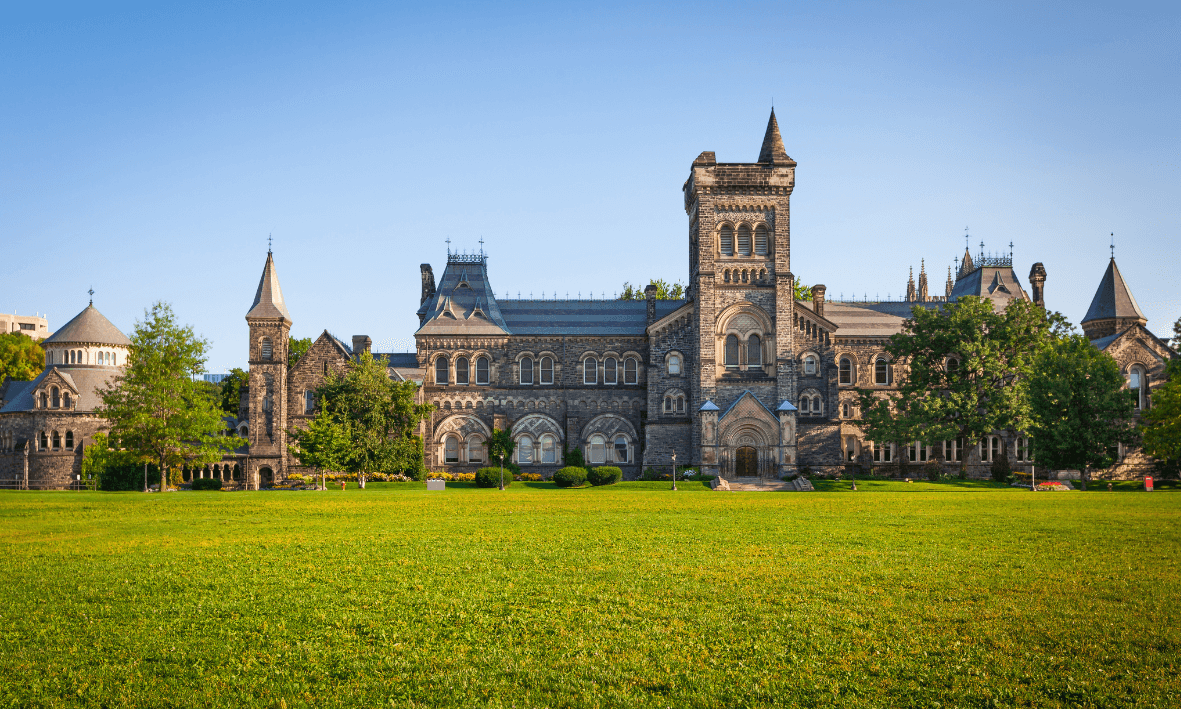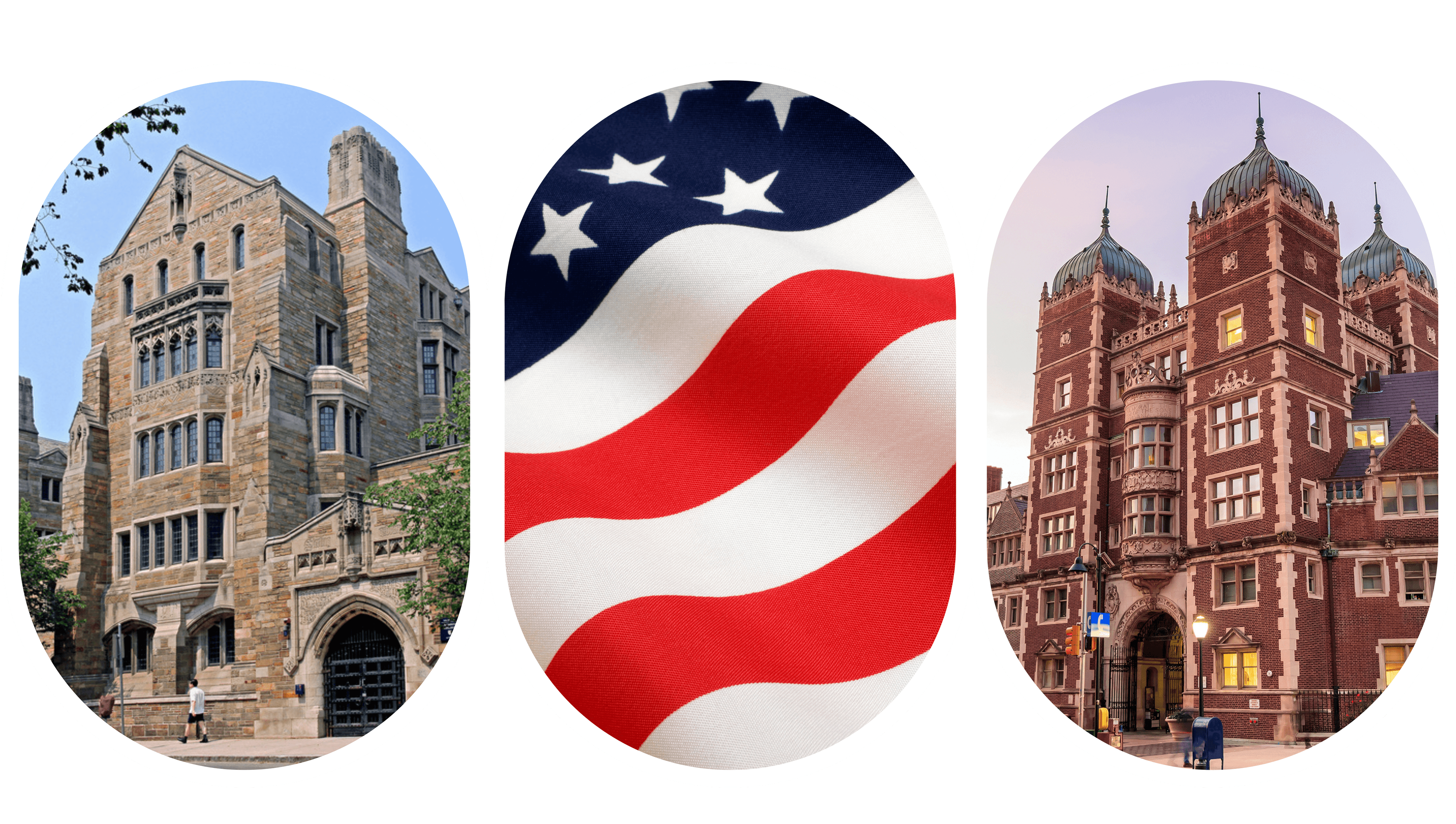Step-by-Step Guide to Canadian Admissions

Summary
The Canadian university system is known for its high quality of education, diverse programs, and welcoming atmosphere for international students, but admissions to the best institutions has been getting more competitive. In this post you'll learn more about the university landscape in Canada and get expert insights into application requirements along with tips for success tailored to international applicants.
Canadian universities are highly respected around the world for their academic excellence and diverse student population, but admissions can be highly competitive. In fact, many leading Canadian universities require a combination of high school grades, standardized test scores, extracurricular activities, and personal essays. While the specific requirements and procedures may vary, most Canadian universities use a holistic approach to evaluate applicants. This means prospective applicants need to aim to stand out academically and also demonstrate promise as positive contributors to campus life.
The Canadian Application Process
The general application process for Canadian universities is similar to that of the US. There are two basic requirements for admission to university for Canadian students: the successful completion of high school, and competency in one of the two official languages (English in most of Canada, and either English or French in Quebec and New Brunswick).
Application processes vary by province. In some provinces, students can apply through a central application service. In others, you must apply directly to the university. So make sure you check all the requirements before applying.
Generally, when applying you can choose amongst Arts, Science, and Business, although there are many variations on these themes and numerous subcategories and majors. However, you can apply without having to declare a specialization at the outset, and be considered “undeclared” for a time. The application process may vary slightly from university to university, so be sure to check the admission requirements and process for each university you are interested in attending. Additionally, some universities may have specific requirements for international students, so be sure to research these requirements as well.
1. Research
Research the universities you are interested in attending, as well as their academic programs and admission requirements.
2. Check intake dates
Figure out which intake is correct for you. The intake process in Canada is generally conducted in the academic terms of Fall, Winter, or Spring.
3. Meet admission requirements
Visit the websites of the universities you are interested in and check for the application process, application deadlines, admission requirements for international students (check country specific requirements if available). Ensure that you meet the academic and English language proficiency requirements for the universities you are applying to.
4. Complete the online application
Most universities have an online application process that requires you to submit your personal information, academic records, and test scores (if applicable).
5. Submit additional materials
Some universities may require additional materials such as essays, letters of recommendation, and transcripts. Be sure to check the requirements of each university and submit the required materials by the deadline.
6. Pay application fee
Most universities require an application fee, which is typically around $100 CAD.
7. Wait for a decision
After submitting your application, you will receive a decision from the university. If you are accepted, you will receive an offer of admission and information about next steps, such as enrolling in courses and obtaining a student visa (if required).
8. Apply for scholarships
You can apply to the scholarships available for international students to fulfill your financial requirements for the program. International students are offered with various need or merit-based scholarships to study in Canada.
Top 10 Canadian Universities
| Rank | University | Acceptance Rate | Average GPA |
|---|---|---|---|
| 1. | University of Toronto | ~40% | 3.7 |
| 2. | University of British Columbia | ~45% | 3.15 |
| 3. | McGill University | ~35% | 3.0 |
| 4. | University of Alberta | ~58% | 3.0 |
| 5. | McMaster University | ~55% | 3.9 or higher |
| 6. | Universite de Montreal | ~40% | 3.0 |
| 7. | University of Calgary | ~15% | 3.3 |
| 8. | University of Waterloo | ~50% | 3.7 |
| 9. | University of Ottawa | ~25% | 3.1 |
| 10. | University of Western Ontario | ~60% | 3.4 |
Application Checklist
Most universities in Canada require students to submit a variety of documents for application. Here is a list of documents generally asked for along with your completed application forms:
- Educational qualifications: You will need to provide transcripts and diplomas from previous studies to demonstrate your academic background and qualifications.
- Proof of English language proficiency: Most Canadian universities require evidence of English language proficiency, such as a TOEFL or IELTS score. For some courses you might need to present a French proficiency score as well. If your language skills are insufficient, there is a host of Canadian programs you can enroll in before applying, offered by universities, colleges and private institutions. For more information, go to the Languages Canada website.
- Standardized test scores: Depending on the program, you may need to take standardized tests such as the GRE or GMAT.
- Personal statement or essays: You may be required to provide a personal statement or essays explaining your motivations and goals for pursuing your studies in Canada.
- Letters of recommendation: Some programs may require letters of recommendation from academic or professional references.
- Financial proof: International students are usually required to provide proof of financial support to cover tuition fees and living expenses during their studies in Canada.
- Work experience: Work experience may be required for some graduate programs, particularly in business or engineering.
University Application Deadlines
| University | Application Deadline |
|---|---|
| University of Toronto | January 12 |
| McMaster University | January 12 |
| McGill University | January 15 |
| University of British Columbia | January 15 |
| University of Waterloo | February 1 |
| University of Alberta | March 1 |
| University of Calgary | March 1 |
| University of Ottawa | April 1 |
How Much Does It Cost To Study in Canada?
When it comes to tuition fees and costs, Canada trumps its competition. Unlike the US and UK, tuition fees in Canada are significantly lower even for international students.
While tuition fees vary for each university and also based on the program you are going for, the average tuition fee for international students in an undergraduate program in Canada ranges from CAD 20,000 to CAD 30,000 per year. This tuition fee does not cover application or student visa costs.
On top of the tuition fees, most students have to pay for accommodation and other expenses like health insurance. The average cost of accommodation is usually between CAD 8,000 and CAD 10,000 per year, depending on where your university is located and what type of housing you select.
The Council of Ministers of Education, Canada (CMEC) offers a useful online tool which allows prospective international students to quickly calculate the costs of studying at different universities in Canada, as well as providing guidance on the documents needed to apply.
It is important to note that need-based financial aid is not available for international students; additionally, merit-based scholarships are extremely limited for international students. International students in Canada have a variety of other financial aid options, however:
- Scholarships: Some Canadian universities offer scholarships to international students based on academic merit.
- Student loans: Some international students may be eligible for student loans from their home country, which can help cover the costs of tuition and living expenses in Canada.
- Work study programs: Some universities offer work study programs that allow international students to work part-time on campus to earn money to help pay for their education.
- Private sponsorships: International students may also be able to secure private sponsorships from individuals, organizations, or corporations to help pay for their education.
The Canadian Academic Experience
Canadian universities offer a wide range of programs, catering to diverse interests and career aspirations. Some of the most common types of programs offered at Canadian universities include:
- Undergraduate Programs: These are four-year programs that lead to a bachelor's degree in various disciplines such as arts, science, engineering, and business.
- Graduate Programs: These programs are designed for students who have completed their undergraduate studies and wish to pursue a master's or doctoral degree in their field of study.
- Professional Programs: These are programs that prepare students for careers in specific fields such as law, medicine, dentistry, pharmacy, and veterinary science.
- Continuing Education Programs: These are courses or programs designed for adult learners who wish to upgrade their skills or pursue a new career path.
- Certificate and Diploma Programs: These are short-term programs that provide specialized training in a particular field such as graphic design, culinary arts, or digital marketing.
- Co-operative Education Programs: These programs combine classroom learning with work experience, allowing students to gain practical skills and knowledge in their chosen field.
- Online Programs: These are programs that are offered entirely online, allowing students to study from anywhere in the world at their own pace.
Overall, Canadian universities offer a diverse range of programs that cater to the needs and interests of students from different backgrounds and career aspirations. Some undergraduate programs at top universities are harder to get into than others. The hardest undergraduate programs to get into in Canada include the Bachelor of Commerce at University of British Columbia, Mechanical Engineering at McGill University, Smith Bachelor of Commerce at Queen’s University, Engineering Sciences at the University of Toronto and the McMaster University Bachelor of Health Sciences.
How Can International Students Prepare For Studying in Canada?
When moving to a new country it is important to prepare yourself for the new life. Here are five tips for international students going to Canada in addition to the college application process:
- Make sure you have the right degrees: Consult your country’s educational authorities or the Canadian Information Centre for International Credentials for more information on degree recognition.
- Understand the student visa process: The student visa process can take some time, so be sure to start the process early. The application process may require documents such as proof of acceptance, financial statements, and biometrics.
- Research about Canada: Start by reading and learning about Canada's history, culture, and people. Understanding the country's values, customs, and traditions can help you adapt quickly.
- Familiarize yourself with the climate: Canada has a diverse climate, and it's essential to understand what to expect in the city or province you plan to live in. Prepare appropriate clothing for the climate.
- Learn about the cost of living: Canada can be expensive, depending on the city or province. Research and understand the cost of living in the area you plan to study and live in.
- Understand Canadian laws and regulations: As an international student, you must comply with Canadian laws and regulations. Research about laws and regulations on things like driving, renting an apartment, and working in Canada.
- Join student groups and organizations: Joining student groups and organizations can help you meet other students, make friends, and get involved in campus life.
- Make necessary arrangements: Make necessary arrangements such as accommodation, transportation, health insurance, and banking before you arrive in Canada.
- Stay connected with your loved ones: Staying connected with your family and friends can help you cope with homesickness and adjust better. Stay in touch via phone, video calls or messaging apps.
University vs. College
In Canada, “university” and “college” refer to two types of post-secondary institutions. A university is a degree-granting institution that offers both undergraduate and graduate programs. Universities typically focus on academic and research programs and provide a wide range of disciplines, including the arts, humanities, social sciences, natural sciences, and professional programs such as law and medicine.
On the other hand, a college typically focuses on applied and technical programs, such as trades, technology, and health sciences. Colleges generally offer certificates, diplomas, and applied degrees, which are shorter and more specialized programs than the degrees offered by universities. The admission requirements for college programs are usually more specific depending on the kind of program you apply for.
Choosing a university or a college depends on an individual's career goals and interests. A university might be the better choice if you're looking for a broad-based education in a wide range of disciplines. But a college might be a better fit if you're looking for a more focused, hands-on education in a specific field.
Final Thoughts
If you're looking to increase your chances of acceptance to a Canadian university, here are some steps you can take:
- Start early: Applying to Canadian universities can be a complex process, so it's important to start early and give yourself enough time to gather all the necessary materials and complete your application. Research your options to figure out which university or college is right for you.
- Meet the admission requirements: Make sure you have a strong academic record and that you meet the specific admission requirements for the universities and programs you're interested in.
- Prepare for the standardized tests: If needed, make sure you prepare for the SATs in time to get a competitive score.
- Improve your English proficiency: If English is not your first language, consider taking an English language test such as TOEFL or IELTS, and aim to score as high as possible.
- Seek out extra-curricular activities: Participating in extracurricular activities such as clubs, sports, or volunteer work can demonstrate your leadership skills and commitment to your community.
- Write a strong personal statement: Your personal statement or essay is an opportunity to demonstrate your passion for your chosen field of study, as well as your motivations and goals for pursuing your studies in Canada.
- Obtain strong letters of recommendation: Seek out recommendations from individuals who know you well and can speak to your academic and personal strengths.
- Show proof of financial support: International students are often required to provide proof of financial support to cover tuition fees and living expenses during their studies in Canada. Make sure to have a solid financial plan in place.
Remember, competition for admission to Canadian universities can be strong, so it's important to put your best foot forward and showcase your strengths and abilities in the best light possible. It is important to take the time to research and prepare for the application process, and to take advantage of all the opportunities available to you for application to Canadian universities.
Crimson Education offers a range of services in college admissions consulting that can support you throughout your academic journey.
- Maximize your chances of admission by working with our college admissions consultants and get started with a free consultation.
- Learn more about academics, extracurriculars, and admissions by signing up for our events and webinars on the topics that interest you.
- For more insights, review our students' admissions results and learn about our story.


